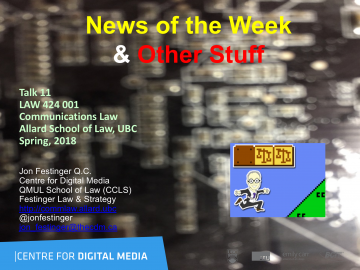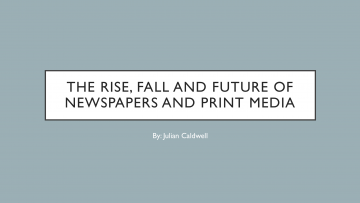Hi everyone,
INTERNET AND ELECTION NEWS CONTINUE
Although, we all addressed Canada’s lack of involvement in invasive data use especially in light of what happened with Cambridge Analytics and their use of Facebook data in order to help the Republicans win the US presidential election, it turns out some Canadians are not totally incapable of using the Internet for political purposes.
This past week it has come to light through the same Cambridge Analytics whistle blower that a Canadian company, AggregateIQ – that was widely credited for its outsized role in convincing British voters to leave the European Union was also used in an effort to sidestep Brexit campaign spending limits — though whether the firm was in on the alleged scheme itself is not clear.
Accordingly, whether foul play is found or not by the company it is still interesting to again see the Internet being used for such major political platforms. In addition, it has been alleged that AggregateIQ did work on projects for Cambridge Analytica and now the work done by the company in connection to Brexit is being investigated by the BC Office of the Information and Privacy Commissioner and Britains Information Comissioner.
Article: http://www.cbc.ca/news/technology/aggregateiq-aiq-brexit-vote-leave-beleave-whistleblower-1.4592056
NEWSPAPER CONNECTION
In connection to the newspaper presentation we had last week I also wanted to add how Facebook is now posting apologies in newspapers regarding the data scandal in the form of advertisements! The apologies appeared in: he New York Times and The Washington Post in the U.S. and The Sunday Times and The Sunday Telegraph in the United Kingdom.
Article: http://www.cbc.ca/news/technology/facebook-apology-ads-data-mining-1.4592404





 Communications Law
Communications Law